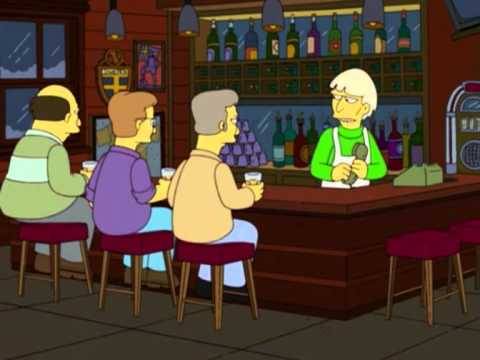Text
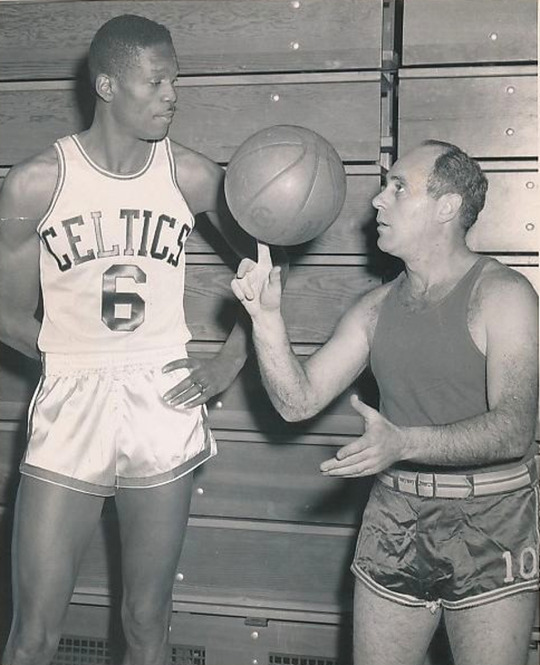
#Bill Russell#Red Auerbach#Boston Celtics#basketball#NBA#sports#photography#black and white#GOAT#1950s
0 notes
Text
"Toll Road Ahead" (Noir/Crime Fiction)
[If anyone likes this story and thinks maybe they could illustrate it, I would give full credit]
"Toll Road Ahead"
Chapter I
Larry Shaughnessy drove a prison van in New York City, just as the town was descending into an abyss from which it would never really recover, and Shaughnessy knew it better than anyone. Who knew better than a man who drove prisoners to the State of New York's worst prisons?
The year was 1968. It was too cold for hippies. This day, rain was falling, but many days it was snow. Heaven help the people without homes. Larry would put away some of the ones who put them there: The dealers, but he got more than his share of the addicts too, sad cases, no easy answers.
Of course, life was never easy for Shaughnessy. Born in 1929 in the rural parts of County Galway, Ireland (then a Dominion of the United Kingdom), his family had the unfortunate timing of moving to the USA, to Boston, Massachusetts, specifically, in the depths of the Great Depression, which, Larry contended, was "inflicted" by New York City on Boston.
Shaughnessy tried to remember his childhood, even as he heard the curses of the men he was driving to a bitter destination. Larry's father could never control his drinking, and his mother, angry at her husband, Larry's father, treated her son with contempt. He could never forget the day she locked him in the basement, yelling, "You should have been a girl!"
To prove himself, Larry almost ended up, in his early years, much like the men he would later send to prison, bitter at the world, fighting and drinking, though he had sworn off alcohol for good in 1953, when he married.
In Marriage, Larry hoped, he would find stability. A bit of Freud would have done him some good, though, as he married a woman not unlike his mother, a woman with deep psychological problems caused, in turn, by her father, leading her to run off with another man within a year, and the Catholic Church annulled the Marriage, as no Marriage.
It was then, in the winter of 1954, that he moved to New York City, not because he hoped for a brighter future there, but simply to escape. Was it all a mistake, he wondered? Could he go back, maybe even to Ireland?
Chapter II
Shaughnessy had no friends of the human kind, nor, in his view of mankind, did he want any. Criminals, of course, and the liberal-minded, hated him, seeing him as a tool of oppression. His boss was almost as bad as the criminals, forever berating him for minor matters, simultaneously telling him to make deadlines and to drive more slowly and cautiously, mutually exclusive goals.
What few friends he had were in Boston, but they had moved on by now. Most of the time, his unwanted company was the criminal population, in the current instance, two addicts who had resorted to armed robbery: One, named Carl, was cursing with rage at Shaughnessy, trying to spit at him, and doing likewise towards the other convict, called Mike, but Mike was weeping and trembling, evidently suffering withdrawal symptoms.
For all the trouble that such men gave him, Shaughnessy understood their desire to escape. Out of the wagon and into the rain they went, shackled and guarded, before an ominous structure of tons of metal and concrete, their home for some years.
At the end of a long shift, he shuffled slowly into his overpriced apartment, high above the zoo of a city. Another thorn in Larry's side was the landlord, Billy Macklin, who treated his tenants, Larry thought, with rather less respect than Larry treated his pet parrot, whom he considered his only friend: "Mirror", Larry called him.
It would be easier to sleep with his old boozing ways, he thought, but then, he did not want to end up like his dad, so fifteen years on, he kept his pledge.
"Evicted! Out on the street!" said Mirror the parrot, repeating something he heard from Macklin to one of Larry's unfortunate neighbors. Under Macklin's terms, Shaughnessy had to pay extra rent to have his parrot, which, of course, meant more hours of work.
Chapter III
Morning: The time Larry Shaughnessy loathed the most. Every morning, Shaughnessy wondered why he bothered. He was still with the Church, but part of him did not believe, or had trouble believing, that human beings were somehow special beings. Better to be a simple creature like Mirror, he often thought.
Today was an eventful one at work: Jerry "Wolfman" Steppe, snarling and biting, was thrown with great difficulty, requiring seven or eight burly guards for the task, into the van. Shaughnessy did not read the papers, believing them full of lies, but even he knew who Steppe was: A burglar by trade, his savage, animalistic attacks on residents made him the talk of New York, no easy matter considering the mayhem and greed that were the norm.
The van started towards its destination, but somehow, Steppe had gotten loose, and, with a razor blade, offed two of the guards on the spot, knocked out a third with a well-placed right hand, and the fourth found a way to hurl himself from a moving vehicle, sustaining injuries but more fearful of Wolfman than of the rough landing.
Shaughnessy could have stopped the vehicle, but instead, to try to prevent Steppe from escaping, he drove faster and weaved side to side. Jerry Steppe, however, changed his demeanor entirely, suddenly becoming quite rational.
"I'm not mad, you know," said Steppe.
Shaughnessy gave no answer.
"We, my friends and I, are building up a little gang in Boston, and you would be a fine addition. We could get you a position like this in Massachusetts, and you could let one of us 'accidentally' escape now and then, for generous consideration in your pocket."
Chapter IV
Jerry Steppe was retried on a procedural technicality, and in the retrial, acquitted, but before this, after a day even more hectic than usual, Shaughnessy, having gotten Steppe to his appointed destination, trudged up the stairs to his apartment, utterly exhausted.
The next day was Saturday, but Larry had no plans. He spoke to his parrot, having no other company: For over a decade, every telephone call he had made had been part of his work.
"Some gang wants me in Boston. I want to go to Boston, maybe, but not as a criminal."
"Boston…" was Mirror's only reply.
"I won't take the offer, but maybe this is a sign, if there even are signs, to go back."
Larry thought about pretending to take the offer, as a way of securing the arrest of these Boston gangsters, but then, Shaughnessy did not trust Hoover or the FBI either, and their cooperation would be essential, of course, in any such scheme.
Just then, a newspaper was thrust under Larry's door. Though he had ordered nothing of the kind, his eye caught the headline, and he read of a corruption scandal, the taking of bribes among some fellow prison van drivers in New York, much like the arrangement suggested by Steppe, evidently part of a network all over the Northeast.
"Oh, that's just great… now these press vultures will make us all out to be crooked, and my boss will fire some innocent drivers just for window dressing."
"Window…" mimicked Mirror.
Chapter V
Larry Shaughnessy spent most of the weekend sleeping, tired from the week and having nothing better to do. The next weekend, though, after another week of much the same mayhem, he approached Kevin Welden, a private detective who wanted, for his own purposes, to gain information on the Irish mob in the Northeast. Together, Shaughnessy and Welden hatched a plan to infiltrate the Irish mob in Boston.
By the end of 1968, Shaughnessy very cheerfully quit his New York job, instead accepting the Massachusetts position arranged for him by the Irish gangsters forming a presence in Boston. The only trace of his New York life Shaughnessy took with him was Mirror the parrot.
John "Shemp" Doolin, so nicknamed for his resemblance to the comedian, was Shaughnessy's contact with the rising Irish mob. The first escape from a prison van was to be arranged in two weeks, Doolin explained, and Shaughnessy was to receive $10,000 for every member of the outfit whose freedom he arranged.
Contacting Welden, he soon discovered, however, that it was never Welden's intention to report the matter to the police, but rather, Kevin Welden was playing the oh-so-dangerous game of blackmailing a criminal syndicate.
Shaughnessy's already weak faith in humanity declined yet more when he discovered that Marky Morris, a friend of his from childhood, now sold narcotics in Boston, but was being shaken down for a percentage of his money by Shemp Doolin.
Larry had burned his bridges in New York, and now, he had either to go through with helping criminals escape or leave Boston. That left only one idea in Shaughnessy's mind: Return to Ireland.
Chapter VI
By February of 1969, Larry was back in County Galway for the first time since he was four. He vaguely remembered the beautiful scenery, and let Mirror, his parrot, fly around in his new country.
After a few months, Shaughnessy managed to convince the Republic of Ireland's government to let him drive a prison vehicle, just as he had in New York City and in Boston.
Late in 1969, however, the Ulster Volunteer Force, loyalists amidst Northern Ireland's Troubles, set off explosives in several locations in Dublin. Shaughnessy would, from one of these explosions, spend the rest of his life with a wooden peg for a left leg.
As he lay in hospital, Larry, wishing Mirror were allowed in the hospital, was approached by the Irish Republican Army, who, because he was the victim of a UVF attack, assumed that Shaughnessy would join their cause, and visited the hospital, pretending to staff to be relatives, to make him an offer not unlike that made by Wolfman Steppe, this time suggesting that he move to Northern Ireland, drive prison vans there, then release IRA.
People were no better in Ireland, thought Larry. Everywhere, people were bad.
Chapter VII
In early 1970, Shaughnessy, noting that the criminals in Ireland were rather tame compared to those in New York, was approached at his home by three men, with distinctly Cockney accents.
"We got work for you, Shaughnessy. We 'ave our own ways of knowing about the underworld, you understand, and 'ow you kept Wolfman in the lorry with your driving was impressive. If you could do that, you could drive for us."
"Drive for you where?"
"We have something planned. Let's say all the best art in London, best by price I mean, is going missing soon. Make the Great Train Robbery look like beggary. We three, me and Dicey and Moore, we 'ave all it planned out 'cept for the driver. That's where you fit in. I know, Irishman, you don't want to give up a respectable reputation, so instead of 25 percent, 'ow about 40, then it's 20 three ways for the rest of us? We couldn't do without the driver, after all."
Shaughnessy looked hard at them, and his peculiar response was, "Give my regards to the Queen."
Having closed the door in the men's faces, Larry, drifting off to sleep, mumbled to Mirror that he thought these men were "British agents or police" suspicious of him because the IRA approached him.
"Why would they know so much about a one-legged man's luck in New York? They're James Bond faking that Mary Poppins talk."
"Poppins…" picked up Mirror.
Chapter VIII
For the next few months, even as he drove prison transport, Shaughnessy believed he was being followed. By which side, he wondered? If those supposed thieves were British agents, the IRA might suspect him of being a traitor to their cause, as they would see it, while the British might be still after him. Then again, maybe someone was trying to help a prisoner escape for some other reason.
Though his boss, Ehan Barsky, told Shaughnessy that he was paranoid and offered to refer him to a psychologist, Shaughnessy knew better. He had, by now, even the license number of the same vehicle he had seen three times in a week, going the same route as he was. Barsky said it was probably just someone who took the same route.
"They were three different routes to three different prisons, Mr. Barsky."
After a day of hauling in some rather violent men, Shaughnessy once again found a newspaper had been slipped under his door, just as in New York, without him asking for it. He laughed ruefully at the lead article.
If the paper was right, a massive London art robbery had occurred. Not only that, but it was thought that it was tied to the IRA and some "ordinary thieves from Boston in the States". The only part Larry had right was that the men were pretending to be British.
That evening, the ever reclusive Shaughnessy, now having a fair idea who was following him, read Schopenhauer while listening to an old record of Joe Meek's "Telstar".
Chapter IX
A rare day off, though stuck in Dublin, not in Galway, thought Shaughnessy. With just the one leg, he felt that his good leg, the right one, needed the circulation of walks, but his mind wandered and he wandered into a side of Dublin he had not seen, which reminded him almost of New York.
Shaughnessy thought his eyes deceived him, but no, there was a man of six foot two on the corner of the street, in a woman's dress, accosting motorists. Reminded too much of New York, he turned back on the same street, only to encounter a middle-aged woman screaming at him.
"You're trying to steal my girls. Nobody takes 'em on this street but me, Joe!"
This woman, dressed rather like an unkempt harlequin, and with pupils looking all wrong, kicked Larry in the leg, but in the wooden one, which was concealed. The thud of the fake leg evidently frightened her, because off she ran, perhaps still looking for "Joe".
That one ugly street brought Shaughnessy up to date: Dublin was becoming like every other city. Providence, Shaughnessy thought, had forsaken Dublin as New York was forsaken long ago. He wanted to live in rural Ireland, the better part, he thought, not in this. If he was to be followed about and encounter these types even on leave, he might as well move back to America, then retire to County Galway.
Thus, by 1971, Larry Shaughnessy was back in Boston, but with the strong sense, once again, that his travels from Dublin to New York Boston had been monitored each step of the way.
"I know too much about some secret doings. It all started with Wolfman," Larry said to Mirror, before mumbling and falling asleep.
"Wolfman…" the parrot replied, before mimicking Larry's snoring.
Chapter X
By this time, Shemp Doolin had taken over the Boston outfit that had once approached Larry Shaughnessy, and tired of being followed, Shaughnessy, with no family and nothing to lose, decided to risk it all and confront Doolin.
He had several rough encounters with Doolin's underlings, one of which required Larry to bring back his considerable boxing skills, learned, not in rings, but in the forties on these same streets. An uppercut, and down went some nameless muscle, but this seemed to impress the Irish mob in a positive way. Now, contrary to what Shaughnessy expected, Doolin wanted to welcome back Larry to their old city.
"You're been doing well for yourself, Mr. Doolin."
"Please, call me Shemp," replied Doolin, leaning back in a plush office.
"I know you arranged the heist in London. I'll bet it was you who put those papers under the door, first to convince me to join you, tell me the prison van business had no future, then to show me I was wrong about those guys working for Britain, right?"
"Smart as well as tough. You're our kind of man, Larry. Look, I know that Wolfman put a lot of people off. We needed him to make a name for ourselves, but then, well, he got too… gruesome for us."
"Took him out, eh?" asked Shaughnessy.
"As he would have done to us."
"I suppose you gave most of that art money to the IRA, right?"
"Better than 80 percent," replied Shemp.
"Then I want 10 percent of it, since you still have that much."
Doolin thought over the matter, rubbing his hand against his not quite shaven face.
"I like you, Larry, and you're Irish, but you gotta do one job for us, and on my word, the boys will stop following you."
"I won't do the dirty stuff. You know that."
"Yeah. Of course not," Shemp continued, "But you wouldn't mind ridding a neighborhood of a guy that deals to kids, would you?"
"I won't go as far as murder, if that's what you mean," replied Shaughnessy.
"No need to… two in the legs and he'll leave Boston."
"And go to New York, I suppose?"
"The big rotten apple, yeah," Shemp agreed.
Larry Shaughnessy asked around, and yes, the man whose photograph Doolin gave him, one Harvey Beckham, did indeed deal to kids, among his other hateful deeds. Shaughnessy did not like working with criminals, but then, he was doing Boston a favor, and once the deed was done, Beckham, having recovered physically, went to New York, as the Irish predicted.
One obstacle faced Shaughnessy is his escape, however: A toll booth. He had been so focused on the unusual assignment that he had forgotten his wallet, and in the circumstances, did not want authorities to take too much interest in him. Taking a deep breath, Larry thought it over, and realized that he had a car on loan from gangsters. Maybe they stashed money in the car, and sure enough, there was a $100 bill under the back seat.
Looked at rather strangely by the woman at the booth, she nevertheless found change for the hundred. The next day, being no thief, Larry gave $100, this time in tens, to Shemp Doolin, recounting his close call on the toll road.
Epilogue: Larry Shaughnessy, now affluent, moved to a cottage in rural County Galway, in early retirement, taking Mirror the parrot with him, of course. Hoping Mirror would outlive him, Larry found a worthy neighbor, he considered, who would take care of Mirror, according to the terms of Larry Shaughnessy's will and testament, if the bird did outlive him.
#short story#original work#oc writing#noir#crime fiction#New York City#Irish#Boston#gangster#prison#Ireland#Galway#The Troubles#tw: alcohol#tw: parental abuse#tw: drugs#tw: addiction#tw: violence#60s#70s#parrot#antihero#Dublin#illustrators#gender nonconforming#gay#aromantic
0 notes
Text
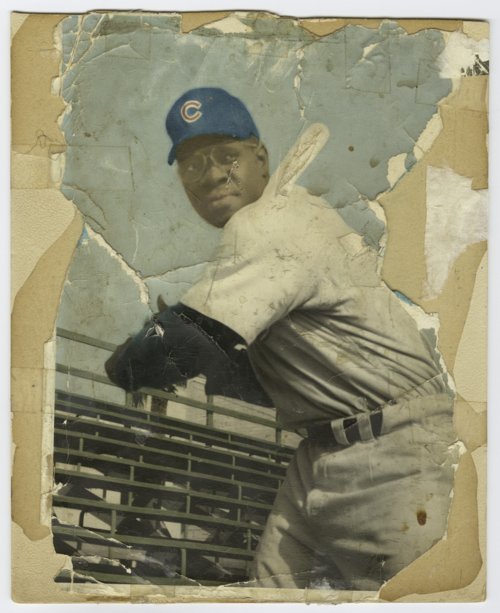

In Carlsbad, New Mexico, on August 11, 1959, Gilbert M. Carter (d. 2015) hit the longest home run in professional baseball history.
Assisted by the town's high altitude and batting in the Class D minor leagues, Carter, known for high numbers of both home runs and strikeouts, nevertheless hit a baseball substantially farther than any other baseball professional, and possibly any human being anywhere, ever has, with estimates varying from 650 to 733 feet.
Carter's year of birth is variously given as 1931, 1932 or 1935.
0 notes
Text

1 note
·
View note
Text

3 notes
·
View notes
Text
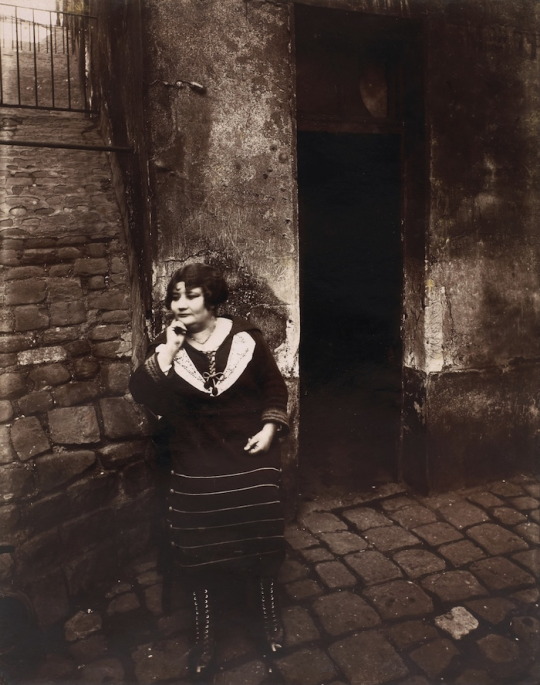
0 notes
Text

1 note
·
View note
Text

1 note
·
View note
Text

0 notes
Text
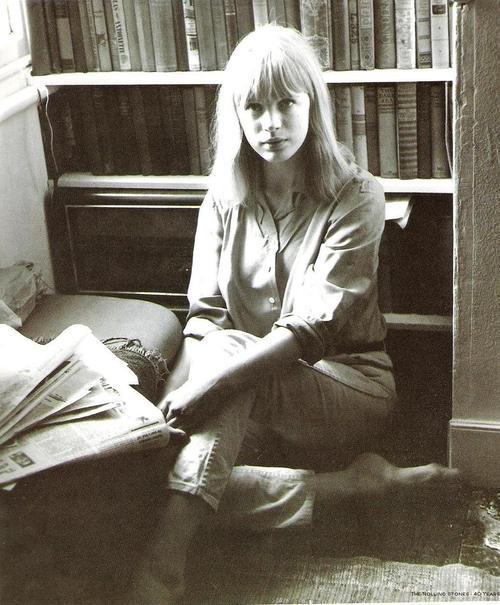
#Marianne Faithfull#music#library#fashion#beauty#academia#hair#casual fashion#60s#coquette#photography#black and white#lighting#blonde
0 notes
Text

The world champion 1958-59 Boston Celtics, who swept the then Minneapolis Lakers in the NBA Finals. Here is a surreal statistic that shows how great a big game player the true GOAT, Bill Russell, really was: In Games 2, 3 and 4 of the Finals, Russell got 30 rebounds per game, and by that, I mean that he got exactly 30 rebounds each game, and he did it against a frontcourt that included Elgin Baylor, who averaged, during the regular season, 15 rebounds per game.
#Boston Celtics#Bill Russell#Red Auerbach#basketball#sports#black and white#photography#1950s#autographs#not mine
0 notes
Text
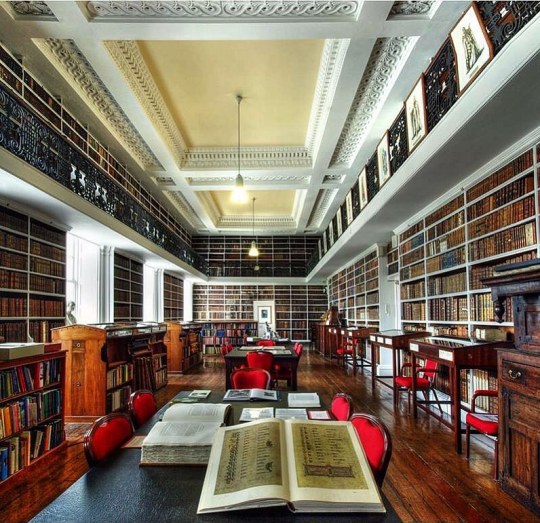
0 notes
Text

0 notes
Text

0 notes
Text
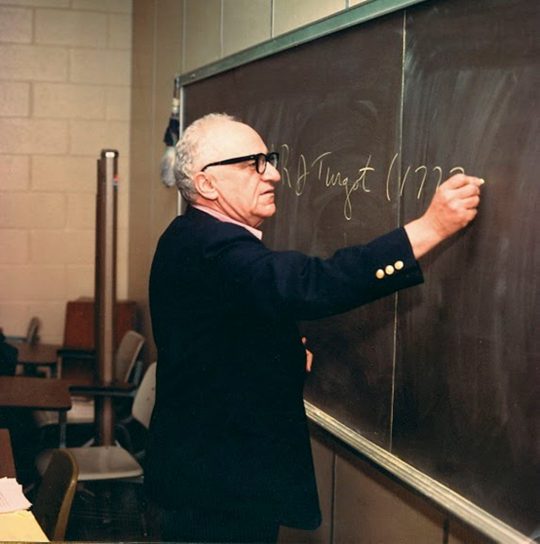
0 notes
Text

3 notes
·
View notes
